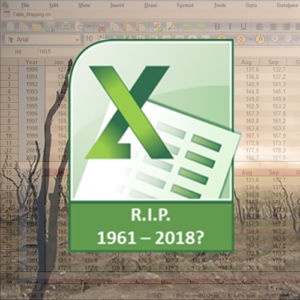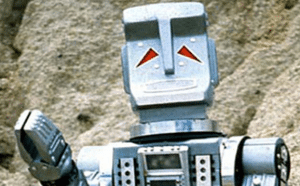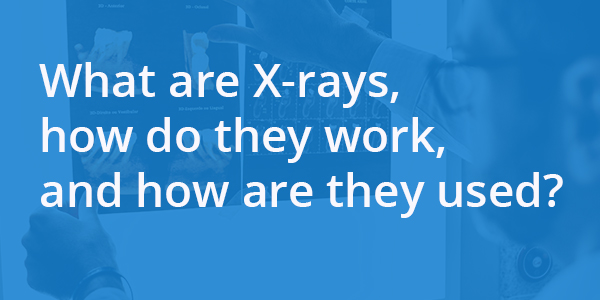
What would you do without your spreadsheets?
The spreadsheet has run accounting departments for 50 years and seen off ERPs, accounting systems and paper. The real beauty of the spreadsheet is that it is authored, updated, changed and published by us. We don’t need IT or an external consultant we just open up a fresh page and have 1,048,576 rows and 16,384 columns to play in (or 17,179,869,184 cells by my maths). Spreadsheets started on the mainframe with LANPAR a snappy acronym (LANguage for Programming Arrays at Random) but they came to our notice when deployed on the personal computer. Little did Dan Bricklin know back in the late 1970s what his visual calculator,(VisiCalc) hit the market what an effect this software and the ones it spawned (e.g. Lotus 123, Excel etc) would have.
But why have so many people said that Spreadsheets are about to die and be replaced?
The reason is Twofold, firstly Business Intelligence was supposed to replace them (it doesn’t). The second, and more compelling argument, is the rise of the robot. Even here we see robots are more likely to help with creating or updating spreadsheets like super macros rather than necessarily killing off the application.
However, Robotic Process Automation is sweeping through business and especially accounts departments bringing efficiency, increased levels of control and more importantly allowing you and your teams the freedom from being slaves to spreadsheets.
Just ask yourself this one simple question.
How much time do I or members of my team spend keying data into spreadsheets?
If the answer is more than 10% of your month, then you will see an immediate benefit from looking at robots. If you want to continue to use a spreadsheet this is fine, but you should no longer employ anyone to manually input data into it. If the data exists on the web or in other internal systems, robots are much better at going and getting this information and putting it into Excel. Imagine the spreadsheet as a tool that has already been updated, no more keying just access the information you need at any time.
Companies that are deploying software robots to automate manual tasks such as keying data into spreadsheets tend to build hundreds and thousands of digital assistants to replace manual work, not just with spreadsheets but also putting data into or between any number of back end systems like your ERP or CRM. Robots work 24/7 and never make a mistake. They never take a holiday, and never come into work the worse for wear after a night out on the town.
They can collect data from internal and external sources saving you and your teams time and allowing you to focus on your real job of adding value to your business and bringing financial insight with guaranteed compliance.
In ten years’ time I cannot imagine a business that would employ a human to do menial keying of data, this task will thankfully be assigned to the annals of history.
If you haven’t seen a robot in action you are in for a treat, but be aware that not all robots are created equally. I went to see a company recently and they had spoken to a global SI who had quoted a huge sum of money to run a proof of concept. Over a year later they had 8 robots built and a huge IT infrastructure to support. It is crazy. Now if they want a robot they think it will take multiple virtual machines, huge license costs and weeks and months of expensive development.
If the spreadsheet was this complicated to use and deploy it wouldn’t have taken off as it had. So choose a robot technology that doesn’t need IT and months of development. If you are interested I can share with you the technology we have chosen after looking at the marketplace (message me in LinkedIn). I personally love the fact that users are building thousands of robots and reaping huge benefits without the need for infrastructure or consultants. This is why the Spreadsheet succeeded, and it is also the way robots will succeed.
Is the spreadsheet dead? no. Now we have robots, will it ever be the same again? NO. Enjoy the year of the Robot!

Tim Miller
Digital Transformation Expert
.png?width=828&height=208&name=Twofold-Logos-no%20drop%20(1).png)


